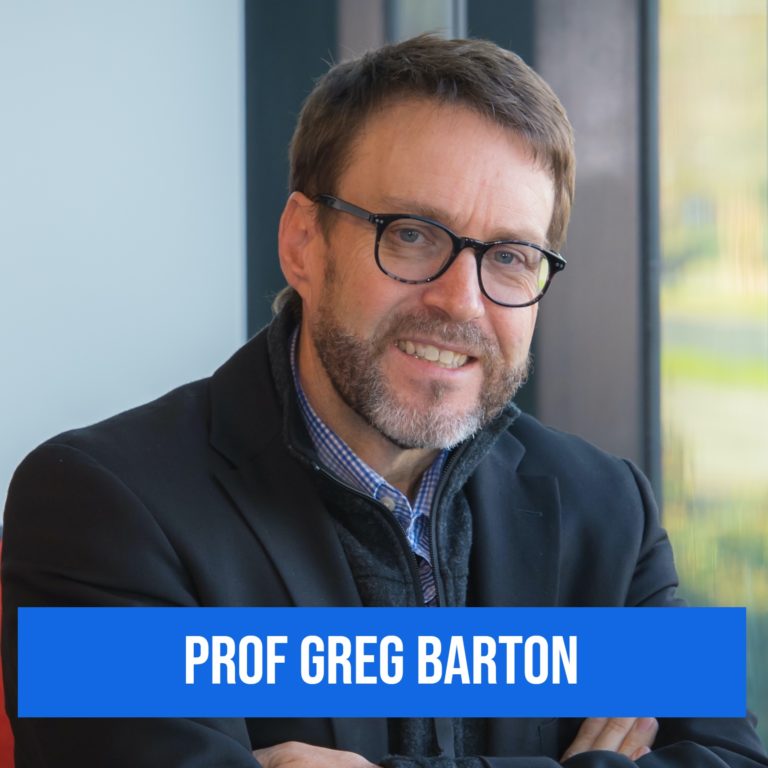It’s no secret that internet identity Andrew Tate is a controversial figure.
He was indicted in June this year to face charges that include human trafficking and rape and is among several social media stars who have been accused of espousing misogynistic rhetoric online.
But with some schools still reporting the attraction many young men have to figures such as Andrew Tate, EducationDaily spoke with Deakin University’s Professor Greg Barton. He’s an expert in extremist politics and says it’s important to distinguish between a young man who is drawn to misogynist figures like Mr Tate and one who has begun experimenting with far-right ideologies.
Adults should be vigilant
Professor Barton says that one, if not managed by adults, can lead to the other.
“There are two trajectories – one is being drawn to hyper-masculine role models that affirm their sense of being heard, that offer a way out of being a victim and a fantasy of success – and that for many are all contributing focus,” he says.

“For some, they might begin with that and then go on to embrace broader political models that see a global political system against them, understand that a political model explains their personal experience of failure or their point of view of victimisation, and then it goes on to become something that is far-right political extremism.
“The two things overlap, and both forms of radicalisation present a major issue.”
Misogynistic ideologies cause harm
Professor Barton says that while far-right extremism presents a greater risk to the community at large, there are still many dangers to the simple misogynistic ideologies touted by Mr Tate and similar figures.
“In terms of impact on people’s lives, a young man simply drawing into the toxic masculinity, or any broader concerns or politics is likely to have a connection with domestic violence, so it’s probably a bigger problem in society than far-right extremism even though it has a lower profile or is not seen as connected,” he told EducationDaily.
“With radicalisation to extremism broadly, whether it’s this sort of far-right political ideas or Islamist ideas or whether it’s simply personal triumph framed in hyper-masculine ideas, don’t present themselves as being involved in something negative or criminal or wrong; on the contrary, they present themselves as being on the right path as something virtuous.”
When masculinity is seen as virtuous
Professor Barton says that young men can easily miss the signs that these figures are pushing anti-social narratives, as they often couch their rhetoric in traditionally masculine virtues.
“They speak of themselves as being a part of the natural order of things – of course, this is mapped out in very sexist ways, stating men are naturally a certain way and women are naturally a certain way,” he told EducationDaily.
“They also wrap that in with ideas of personal discipline. Even though, essentially, what they’re offering is a very juvenile sort of giving in to impulse and desire without consequence – it’s presented as being alpha male, it’s presented as being powerful and disciplined.
“Andrew Tate, for example, makes much out of his athleticism, his kickboxing, his workouts, his physicality, and he boasts of being disciplined, he boasts of just getting things done. The last thing he would want to acknowledge, Andrew Tate, is that he was simply succumbing to hedonistic desire in a completely self-serving narcissistic fashion.”
Instead, Professor Barton says, Mr Tate would completely refute that “because he would see himself as a model of male mastery and discipline”.
Vulnerability can lead to dangerous ideas
Professor Barton says the young men who are falling into these ideologies are doing so out of a place of vulnerability.
“So young men, particularly as they are struggling with hormonal changes and impulses, which is very natural and normal,” he told EducationDaily.
“And those who are particularly drawn to these sorts of hyper-masculine models of social media influence often have particular personal strugglings, maybe not having strong role models at home, and are feeling misunderstood.
“For somebody to offer them a way to fulfil their impulses and to get what they want in a very narcissistic fashion, and they’re presented as being virtuous and disciplined and be very attractive.”
For educators who are worried for students who are showing signs being under the influence of far-right thinkers, Professor Barton says the following:
“There’s an old joke: how can you tell if someone is an admirer of Andrew Tate? They’ll tell you,” he told EducationDaily.
“If we’re paying attention, if we’re listening, if someone is drawn to a hyper-masculine social influencer like Andrew Tate, there’s every chance they’ll tell us or say other things that will suggest that might be the case.
“So having that conversation in a non-judgmental way so that they’ll open up and say open up and say, well these are the people I like.”
Don’t judge – but listen
The line of questioning, Professor Barton says, could open up the discussion a bit more” “who do you most admire, who do you think offers the best solutions to the problems we face, who do you see as being most interesting to watch on youtube or tiktok, or whatever it might be”.
“Chances are, somebody drawn to an Andrew Tate figure will tell you anyway without you asking the question, but if you ask that question, it’s very likely there’ll be a flood of information about why they’re drawn to figures like Andrew Tate.”
He says approaching non-judgmentally and empathetically is important.
“Then you can break it down and say, ‘Well, you’re having somebody tell you how to see that discipline is good, having somebody explain that life sucks and that’s very attractive, but what is this guy really offering?” he told EducationDaily.
“What’s the benefit to you, but also, what is the harm to others?
“You can then move on from there. It would be good if we wanted to have life our way, but are there any victims involved with this – particularly with women? Would they be getting a fair deal? would they feel comfortable?
“What Tate and others are constantly doing is providing an answer to a problem but also providing an answer to guilt. That’s when they say, you shouldn’t feel guilty, you shouldn’t feel shame, this is your right, this is natural.”
Reconciling guilt
While guilt and shame are a problem in and of themselves, for a young man to feel guilt and shame for misogyny or for what he recognises deep down as selfish behaviour toward women is, Professor Barton says, ” a positive impulse”.
“But Andrew Tate might tell him to just ignore it, while a genuine friend might tell him, ‘If you feel bad about that, maybe there’s a reason you feel bad’.”
The risk is, that if there’s somebody that’s offering that young man a solution, it may leave them ending up feeling torn because they’ll feel guilty.
“And even though you’re trying to deal with the question of self-esteem and self-worth if you go down the path they’re offering you, you may find it’s hollow, and you’ll wake up feeling even worse about yourself.”
The emotions of radicalisation
He says it’s important to note that radicalisation is not a cognitive process like many people may think, but an emotional one.
“We think of it as an individual drawn to ideas, but in practice, it tends to be an emotional individual drawn to a group in looking for a sense of belonging,” he told EducationDaily.
“It’s very much about a desire to for belonging to be accepted.
“It’s a very important point because the way out for somebody who looking to be accepted and is halfway radicalised into extremist circles is not to confront them head-on with the ideas up front but to help them find a way back to belonging and a healthy social group so that they disengage from the group that was maligned and destructive and they re-engage or perhaps engage for the first time with a group that’s healthy and affirming.”
The process of de-radicalisation can be a tricky one for educators, and it is likely to be an on-going issue.
The best thing an educator can do is to be understanding of young men, as most who use social media are likely experiment with these ideas in one way or another.








